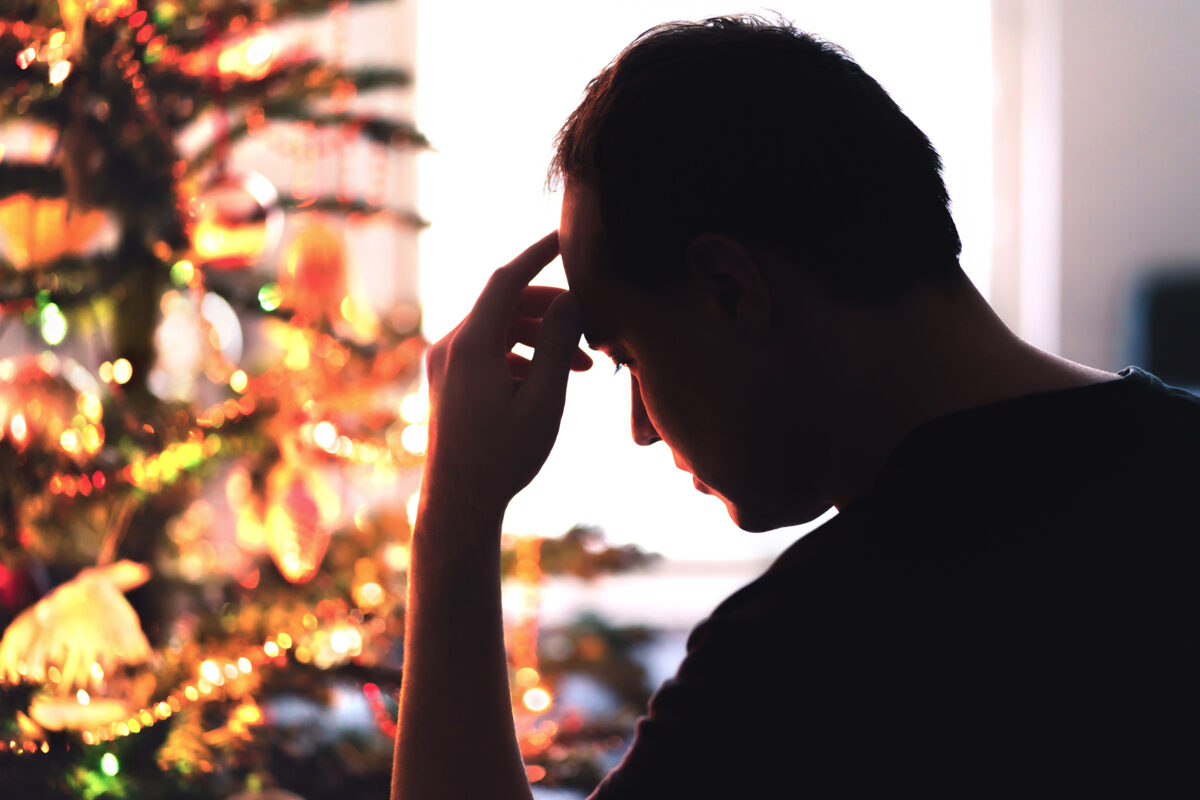The holiday season is celebrated as one of festivities and cheer. At the same time, many people are feeling a little blue. And a majority of those with mental illness feel worse.
“There are many reasons that people feel down at this time of year,” says Dr. Deborah Gatlin, a child psychiatrist and medical director at BlueCross BlueShield of Tennessee. “First of all, it’s dark at 4:30, which can make you feel like you want to hibernate. On top of that, there are increased demands on your time and energy, and people expect you to enthusiastically participate in festive activities.”
Fortunately, being aware of the problem can help you prepare—and possibly avoid the worst of it.
Why people feel depressed as the holidays approach
Dr. Gatlin: While the holidays can be filled with joy, many people feel pressure and anxiety. You have increased demands to attend or organize holiday gatherings, prepare special food and buy gifts. Financial pressures are also a big source of stress, as you worry about paying for everything when the bills start to roll in.
Plus, the sun sets so early in the winter months. Often, it’s dark—or nearly dark—by the time you get home from work or school. With less light and more cold weather, many people develop seasonal affective disorder, or SAD.
Also, a lot of people are missing loved ones at the holidays. If you’ve lost someone, it may just feel like a season to endure, rather than to celebrate.
Acknowledging your risk for feeling sad or depressed during the holidays is the first step. You know that you might not feel as happy and energized as other people feel—or expect you to feel.
Strategies for navigating holiday stress
Dr. Gatlin: Here are a few steps to help you navigate this holiday season:
- Set realistic expectations. Don’t let yourself feel bad if things don’t go as planned—or your holiday doesn’t stack up to the vision that you have in your head. You can still enjoy the beautiful moments, even if they’re sandwiched between times of chaos.
- Give yourself permission to forgo certain activities. Setting limits or boundaries can help you make it through a particularly challenging time. For example, if participating in a holiday tradition or activity makes you feel worse or triggers unhappy feelings, it’s okay to bow out of it. However, you might also try to be open to trying some new things, because you might find a new tradition that you like even better than an old one.
- Watch your alcohol consumption. Alcohol is a central nervous system depressant. What that means in everyday language is that it slows down your brain’s ability to function. It can affect your mood, your behavior, and your self-control. That can be a dangerous combination when you’re already feeling rather low. Rather than imbibe and risk feeling worse, try an alcohol-free mocktail
- Rest. If you’re exhausted, it can exacerbate your feelings of depression. Make sure that you get enough rest during the holidays. That might mean picking and choosing what parties or events you attend or attempt to do. If you need to leave an event early to make sure you get enough sleep or to conserve your energy, that’s fine, too.
- Budget. You may worry about how to pay for gifts for your family or how to afford your holiday plans. Set a budget and stick to it.
- See your therapist. It may be tempting to cancel your regular counseling or therapy sessions during the busy holiday season, but that might be counterproductive. Getting your feelings out and talking about them gives you more control over them. You can work on strategies to address triggers for anxiety with your counselor. Also, this is not the ideal time to consider taking a drug holiday from any antidepressant medication that you may be taking.
“With some thoughtful planning, you can keep holiday stress from bringing you down,” says Dr. Gatlin. “At the same time, if you are feeling overwhelmed, it’s fine to ask for help.”
WellTuned mental health tips for the holidays
Get more information about specific health terms, topics and conditions to better manage your health on bcbst.com. BlueCross BlueShield of Tennessee members can access wellness-related discounts on fitness products, gym memberships, healthy eating and more through Blue365®. BCBST members can also find tools and resources to help improve health and well-being by logging into BlueAccess and going to the Managing Your Health tab.


